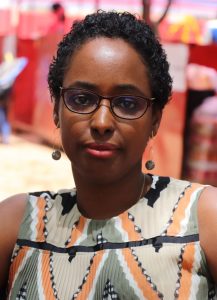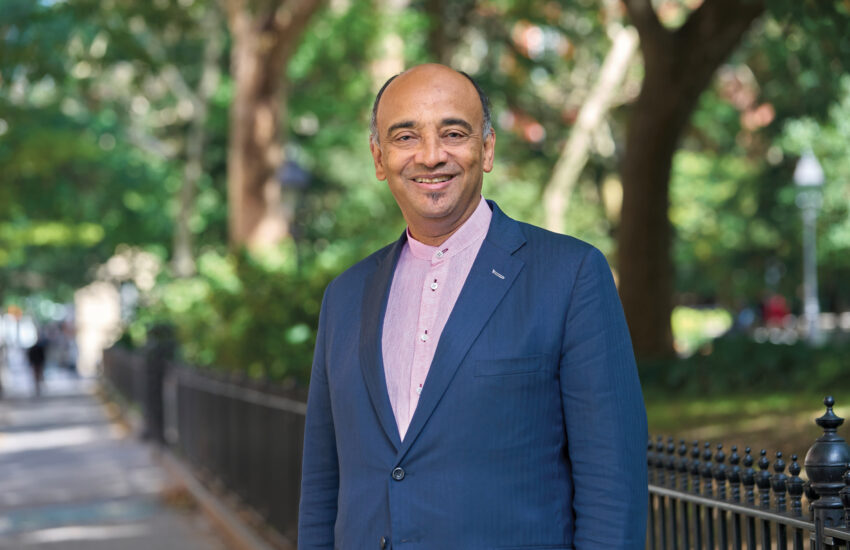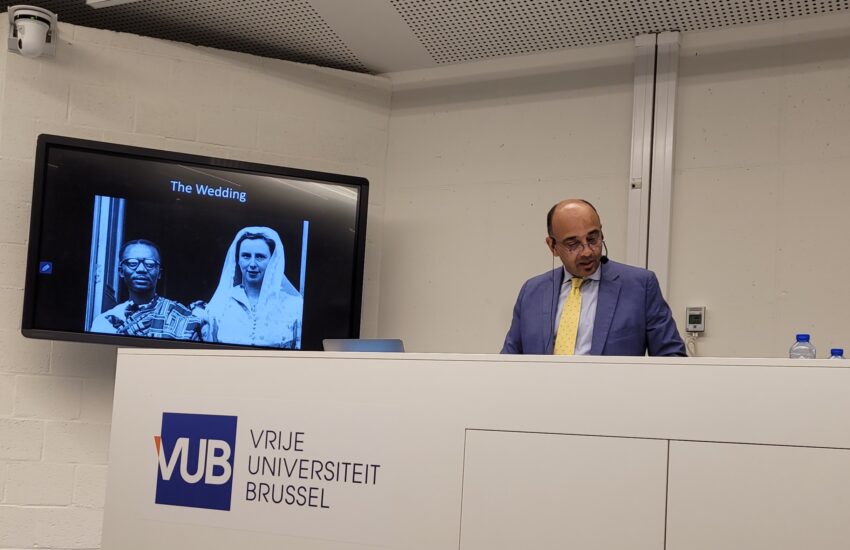Afropean Voices during Covid-19: A global call for the enjoyment of human rights
 Aua BALDE (Guinea Bissau, Portugal) is a member of the United Nations (UN) Working Group on Enforced or Involuntary Disappearances of the Human Rights Council. She is also a researcher and lecturer at the Católica Global School of Law in Lisbon, Portugal. Aua holds a LL.M. degree from Harvard Law School on International Human Rights Law and has been admitted to the Portuguese and Bissau-Guinean Bar Associations. She has worked as a lawyer, human rights activist and UN peacekeeper in Guinea-Bissau, Senegal, Côte d’Ivoire, Central African Republic, Portugal, and the United Kingdom.
Aua BALDE (Guinea Bissau, Portugal) is a member of the United Nations (UN) Working Group on Enforced or Involuntary Disappearances of the Human Rights Council. She is also a researcher and lecturer at the Católica Global School of Law in Lisbon, Portugal. Aua holds a LL.M. degree from Harvard Law School on International Human Rights Law and has been admitted to the Portuguese and Bissau-Guinean Bar Associations. She has worked as a lawyer, human rights activist and UN peacekeeper in Guinea-Bissau, Senegal, Côte d’Ivoire, Central African Republic, Portugal, and the United Kingdom.
The outbreak of the global pandemic has placed at the forefront the critical importance of the enjoyment of human rights, in particular economic, social and cultural rights. The right to health is central to global, regional and national approaches to addressing the pandemic including on the access to and distribution of the COVID-19 vaccines. The pandemic made apparent the interconnectedness of such global challenges and the absolute need for a worldwide approach in tacking such issues; yet, paradoxically, global responses have been uncoordinated and self-serving, and thus leaving behind the most vulnerable and disempowered people, from the poorest countries.
The right to benefit from scientific advancement, the right to education, the right to food, the right to an adequate standard of living, and many other economic, social and cultural rights are being severely impacted by pandemic related restrictions, such as constraints on the movements of people. For many in Guinea Bissau, where I am from, these restrictions are adding another layer to the various hurdles to access local, regional and global opportunities, in an already strenuous environment where social protection is limited if not inexistent. Similarly, rights to housing and work, have been severely compromised for people of African descent across the world. In Portugal, where I live, this is the case among Afro- descendants in underprivileged neighborhoods such as “Jamaica” in Lisbon, where COVID-19 is hitting hardest.
Adapting to online learning and business cultures is a potential solution. Yet, such solutions are not accessible to all as the access to internet, technological gadgets and electricity in many parts of the world is still very limited. Hence, while digitalization offers great opportunities, for it to be effective it must be understood as a supplementary tool, not as a replacement of the existing working and teaching modalities. In Guinea-Bissau, for instance, although 79% of the population has access to a mobile phone, internet penetration stands at 13% and access to electricity is scarce. Overlooking such realities will inevitably result in the deepening of existing inequalities and the emergence of new ones. And let’s not forget, the erosion of rights is particularly felt by women and girls, working and/or studying while simultaneously in charge or contributing into a household or family, in many cases as primary caregivers.
In the aftermath of the pandemic, we need to fast track critical issues, including those related to the full enjoyment of economic, social and cultural rights. We must ensure universal primary and secondary education, across the world and amongst the most vulnerable. Concrete measures must be taken to guarantee the return of girls to schools in post-covid confinement. In doing so, we would avoid falling behind while simultaneously walking towards global development and enjoyment of the most fundamental human rights. We must act now!
This perspective is included in the upcoming Collateral Benefits Perspective Paper IV: Voices of the African Diaspora, a collaboration beteeen Collateral Benefits , Fundación Manos Visibles and Afrøpean.


